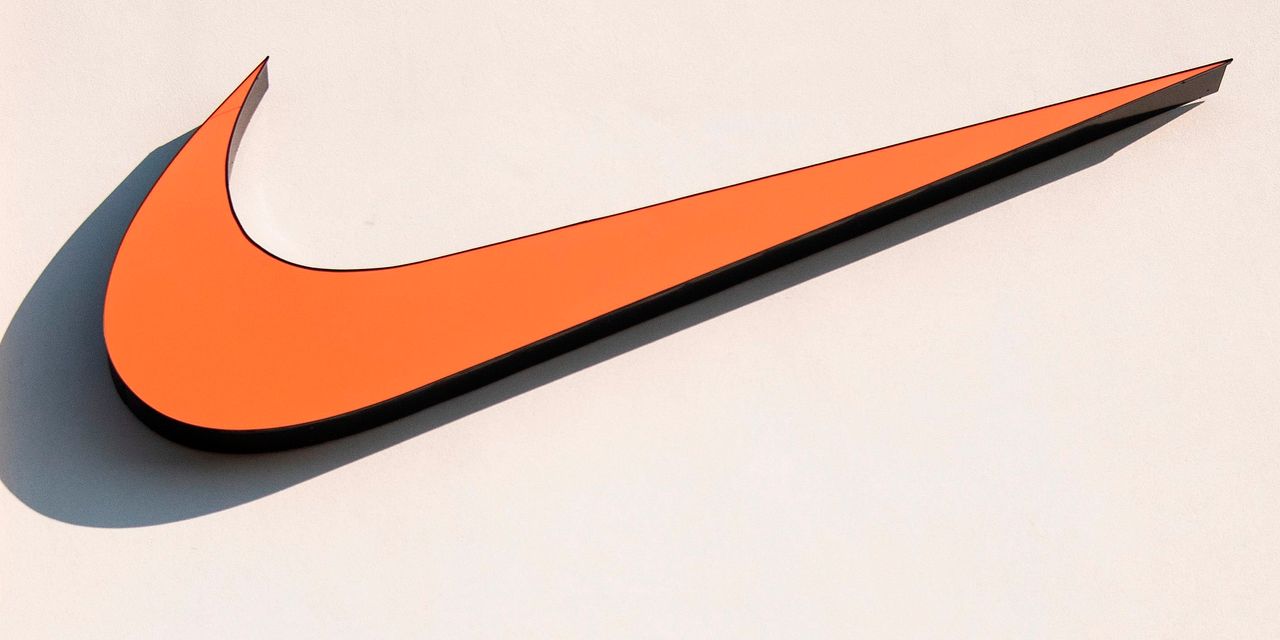Shares of Nike Inc. fell on Thursday after the sneaker-maker reported fourth-quarter profit that came up short of Wall Street’s expectations, with price cuts weighing on results amid weaker demand that one analyst said loomed large for the U.S. economy.
Executives said on Nike’s
NKE,
earnings call that the current backdrop for shoes and clothing remained “highly promotional” — or still rife with discounts that might attract shoppers but lead to fewer sales dollars. But they said the company managed to end the quarter with the same amount of unsold stuff that they had last year, after shoes and clothes piled up amid surging inflation that forced customers to cover expenses for things that were more important.
Chief Financial Officer Matt Friend said during the call that for the full fiscal year ahead, he expects Nike’s sales to grow in the “mid-single digits.” And even as rivals push ahead on markdowns, he said Nike will try to keep its own prices higher, saying its priority in the months ahead will be to “drive healthy, full-priced growth.”
Nike reported the results after the U.S. government earlier in the day said that upwardly revised figures showed that the nation’s economy grew at 2%. But some analysts said Nike’s results suggested the economy — dogged by concerns about inflation, rising interest rates and weaker discretionary spending — wasn’t in the clear yet.
“Nike’s Q4 23 earnings report makes it abundantly clear that the U.S. economy is, in fact, facing considerable headwinds — which is a bit of a cold blow after this morning’s very positive GDP figures,” Thomas Monteiro, senior analyst at Investing.com, said in an email. “I think the main takeaway here is that investors should take this threat seriously going forward.”
Nike reported fourth-quarter net income of $1.03 billion, or 66 cents a share, down from $1.44 billion, or 90 cents a share, in the same quarter last year. Revenue rose 5% to $12.83 billion, compared with $12.23 billion in the prior-year quarter.
Analysts polled by FactSet expected Nike to report adjusted earnings of 68 cents a share, on $12.58 billion in sales.
Nike said gross margins slipped 140 basis points to 43.6%, dragged by “higher product input costs and elevated freight and logistics costs, higher markdowns and continued unfavorable changes in net foreign currency exchange rates.”
Shares fell 4.2% after hours on Thursday.
Heading into the earnings, Wall Street had questions about what it might take for Nike to clear its inventories. Nike over recent years has tried to sell more shoes and clothes directly, either through its own e-commerce platform or its own physical stores. But recent plans to start selling again in Macy’s Inc.
M,
and Designer Brands Inc.’s
DBI,
DSW shoe stores raised questions over whether the athletic-gear maker is rethinking that strategy, amid a broader slowdown in e-commerce demand. Nike, on Thursday’s call, said that strategy hadn’t changed.
Sudip Mazumder, a senior vice president at the digital consultancy Publicis Sapient, said that weaker sales at Foot Locker Inc.
FL,
also filtered through to the quarterly financial figures at Nike. And while he said that costs for materials like cotton had been falling, Nike would need to strike a balance between digital sales and those made at brick-and-mortar stores.
“While spending the last several years cutting ties with retailers, Nike realizes that to tackle the possible elevated inventory levels and profitability, they need to build back more wholesale partnerships with the likes of DSW and Macy’s,” he said.
Shares of Nike have risen 9.6% over the past 12 months. By comparison, the S&P 500 Index
SPX,
has risen 15% over that period.
Read the full article here




